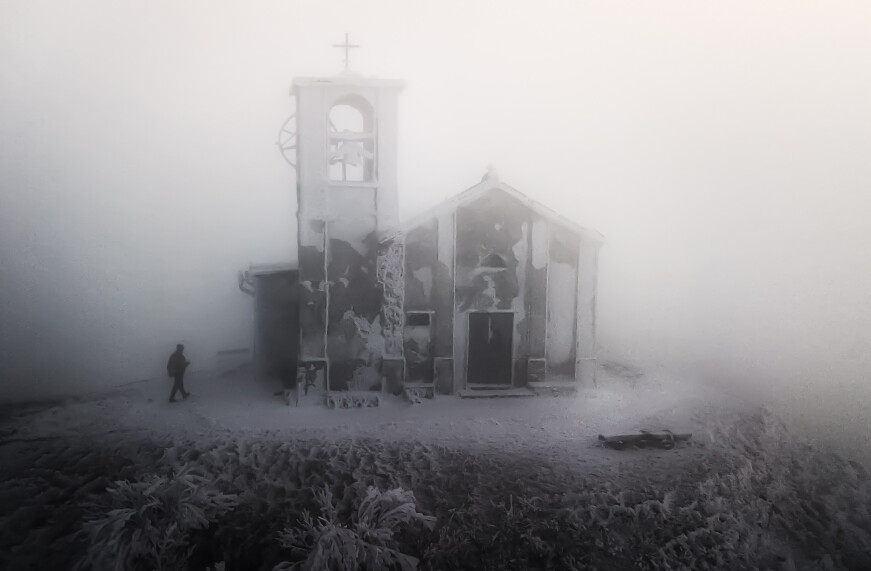This week a young man walked into a Jewish synagogue and opened fire. Yet another atrocity committed against image bearers of God, apparently motivated by hatred against a particular people group, joining other such crimes in our nation as well as many around the world. As we grieve this senseless loss of life we also take time to reflect for, in this case, the alleged shooter was one of our tribe, the son of an Orthodox Presbyterian elder. How does this happen? How does a young man who knows the truths of scripture, has a solid theological underpinning, and a supportive family end up in this position? There are plenty of avenues for soul searching: the nature of our discipleship with young people, are we communities that allow hatred to get a foothold, have we somehow misled people into thinking theology is more important than actually following the way of Jesus? All of these questions and others deserve consideration. But part of the answer lies simply in the post-Christian nature of our culture of which it's characteristics will continue to allow for these types of seemingly incongruous acts.
Some of you have picked up on my use of the term “post-Christian” recently; a term that has been used to describe the cultural moment that we in the West live in. I thought I'd take a moment to flesh it out here, since understanding the characteristics of post-Christianity will help us better understand how to live as followers of Jesus in this day and age, and perhaps how to better understand events like that which took place this week.
One way to understand post-Christianity is to define it against pre-Christianity and Christianity as we use these terms to describe a culture. A pre-Christian culture is one in which Christianity or its ideas are not known. Think of unreached people groups who have no exposure to Christianity or Christian values. They obviously don’t know Jesus as their Savior, and we would not be surprised to see them inhabiting some values that are completely contrary to Christian values. For example, revenge and murder may be the route to tribal ascendancy. This may be held in honor, whereas forgiveness and gentleness may be despised.
A Christian culture would be a culture in which the existence of God is accepted and Jesus is known as Lord and Savior. Values such as in the Ten Commandments are held in high esteem: truth, respect for authority, sexual fidelity, etc… While some may debate the actual extent to which Europe and America have ever actually been Christian cultures, there is certainly a sense in which we can look back and see the impact of Christianity on our culture and recognize that we have been shaped by belief in God and an adherence to his revealed Word. During a Christian era the values of Christianity are respected and the culture is populated by many followers of Jesus.
This leads us to a place to better understand our current Post-Christianity. It is period where the influence of Christianity has waned or has fallen off dramatically. The authority of God’s revelation is no longer given the prominence it once had in a Christian culture. However, contrary to a pre-Christian culture, remnants of Christianity in the collective conscious exist that are valued, though often in an incomplete or even sub-Christian way. The result is that people have a notion of “God”, and they may even call themselves “Christians”, but the Being they are ascribing worship to is very different than the God who reveals himself in the scriptures. This is how a radical ecumenism develops in which one can go to a synagogue, a mosque, or a church and “worship" equally. Or, one can be a holder of sound Biblical theology but also radically hate those different from themselves. Post-Christianity wreaks havoc on the left as well as on the right.
So what does this mean for Christ Church:
- We need to accept the fact that as Jesus followers we are no longer in the majority. That means we cannot assume that people accept our values nor should we be surprised when otherwise “good people” act in ways that are very contrary to God’s word.
- Increasingly the thing that will define a Jesus follower is their willingness to surrender to the authority of God’s Word. In a post-Christian society many people use Christian words and may even describe themselves as Christians, but they do not surrender themselves to the totality of God’s Word. The result is a sort of DIY, cobbled-together spirituality that picks and chooses acceptable Biblical values. People may crusade for justice and mercy while living morally profligate lives without even batting an eye. Others may stand for orthodoxy and be strong morally but, as we have seen this week, be very comfortable with an anti-Semitism or other extreme alt-right ideologies. Of course we all have blind spots in our lives, but the difference is an unwillingness to look at the scriptures and shape one's life to the Word, and rather insist that God's Word needs to conform to us.
- Not all who use the name “Christian” are truly following Jesus. As mentioned above, many people take on the term "Christian" because it is in the culture, they are not Muslim or Mormon, and they have cobbled together a spirituality by that term. Unfortunately this is true of churches as well as individuals. It is shocking how many churches have moved away, both explicitly and implicitly, from the authority of God’s Word. It has been said that folks in this camp want kingdom values but they don’t want a king.
- We hold out an ongoing invitation to believe and belong. Using the language of our sermon series, we hold out to all the invitation to get to know the God of the scriptures: a God who sees, hears, and knows. A God who rescues and redeems. We continue to surrender to Him in all things, and in so doing we find a place to belong within the fellowship of His people.
Photo by Lorenzo Colombo on Unsplash



